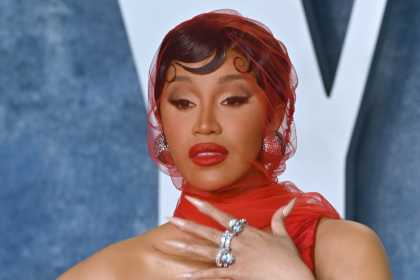A significant dispute has emerged in the music industry as acclaimed songwriter Tiffany Red confronts the handling of songwriting credits on Chlöe Bailey’s latest album Trouble in Paradise. The controversy centers around three tracks from Bailey’s August 2024 release, where an unnamed songwriter’s work was allegedly used without proper acknowledgment or compensation, bringing industry practices under intense scrutiny. This situation has sparked widespread debate about the protection of creative rights in the modern music landscape.
The heart of the matter
At the core of this developing situation lies a complex web of industry relationships and practices. The dispute involves producer BONGO ByTheWay, who allegedly transferred songs originally written for another artist to Bailey’s project without the songwriter’s knowledge. This transfer occurred without establishing proper compensation agreements or obtaining necessary permissions, raising significant concerns about industry transparency and ethical practices in music production.
The gravity of the situation intensified when it was revealed that two of the three contested songs were originally created as solo works for another artist. The unauthorized transfer of these works to Bailey‘s album has raised questions about the standard practices in song placement and the responsibilities of producers in protecting songwriters’ interests.
Industry practices under microscope
The music industry’s intricate ecosystem of creators, producers, and performers often operates on delicate balances of trust and professional courtesy. When these relationships break down, as in the current situation between Red and Bailey’s team, it exposes systemic issues within the industry’s handling of intellectual property. The involvement of major labels Parkwood Entertainment and Columbia Records adds another layer of complexity to the dispute.
The controversy has sparked a broader discussion about the need for reform in how the music industry handles songwriting credits and compensation. Industry experts point to similar cases where lack of transparency and proper documentation has led to disputes, suggesting that this incident might be symptomatic of larger systemic issues within the music business. The current situation highlights the necessity for clearer guidelines and protocols in managing songwriting credits and transfers.
Legal implications and precedents
The impending legal battle holds significant implications for the music industry’s future. Similar cases have historically shaped how the industry handles songwriting credits and compensation. Current industry standards for transparency in song placement, communication protocols between producers and songwriters, and fair compensation practices are all under scrutiny. The digital age has brought new challenges to rights management, particularly in protecting lesser-known creators who often find themselves at a disadvantage in the complex world of music production and distribution.
The bigger picture
This controversy illuminates broader issues within the music industry regarding creator rights and fair compensation. The digital age has transformed how music is produced, distributed, and monetized, yet the industry’s mechanisms for protecting creators’ rights haven’t always kept pace with these changes. The situation highlights the ongoing struggle many songwriters face in receiving proper recognition and compensation for their work.
The rise of digital streaming platforms has further complicated the landscape of music rights and royalties. Songwriters often find themselves navigating a complex web of digital distribution, streaming revenues, and proper credit attribution. Industry experts suggest that standardized documentation processes, enhanced tracking systems for songwriting credits, and improved communication channels between all parties could help prevent similar disputes in the future.
Future implications
As the legal proceedings unfold, the music industry watches closely. The outcome could potentially reshape how labels, producers, and artists handle songwriting credits and compensation. This case may serve as a catalyst for implementing more transparent processes in music production and collaboration, ensuring all contributors receive proper acknowledgment and compensation for their creative work.
The dispute has already prompted discussions about potential reforms in the industry. Many professionals advocate for standardized documentation processes, improved verification systems before releases, and enhanced protection mechanisms for intellectual property rights. The music community’s response to this situation could establish new standards for protecting creators’ rights in an increasingly complex digital landscape.















